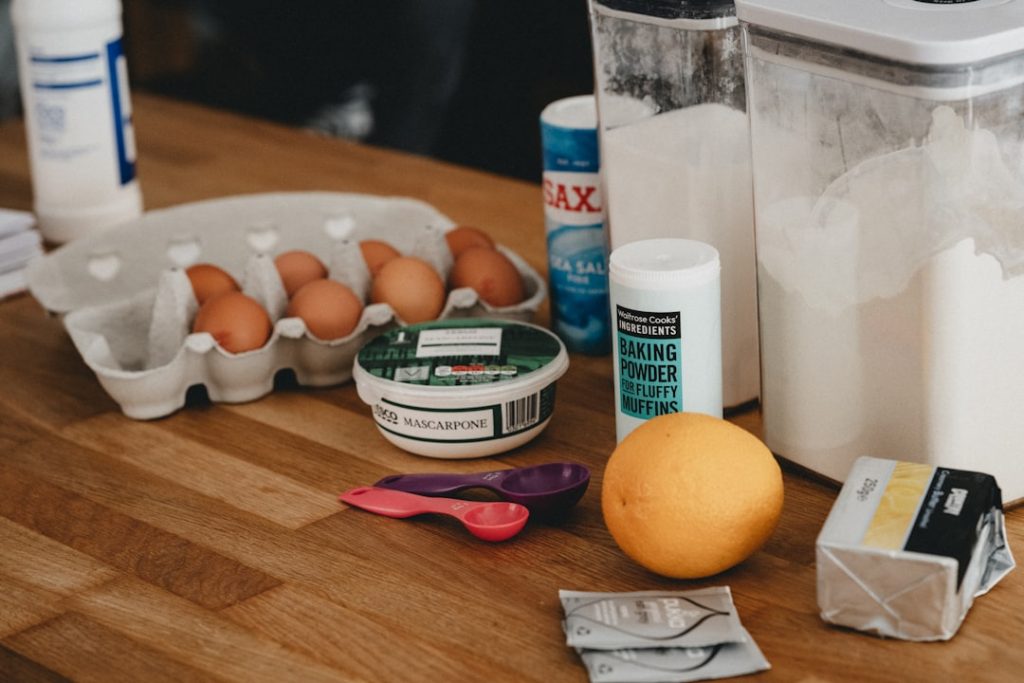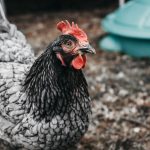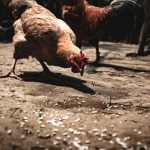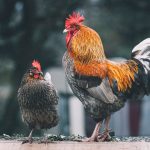Bird flu, or avian influenza, is a highly contagious viral disease primarily affecting birds. Various strains exist, with H5N1 being the most notorious. The virus spreads rapidly among domestic poultry and wild birds, and in rare cases, can infect humans with potentially fatal consequences.
Infected birds may exhibit respiratory distress, decreased egg production, and sudden death. Human symptoms range from mild to severe, including fever, cough, sore throat, and in some instances, pneumonia and respiratory failure. Transmission of bird flu occurs through direct contact with infected birds or their droppings, contaminated surfaces and materials, and airborne spread over short distances.
This puts individuals in close proximity to infected birds or their environment at risk of contracting the virus. Comprehending the nature of bird flu and its transmission methods is essential for implementing effective biosecurity measures to prevent its spread and safeguard both poultry and human populations.
Table of Contents
Key Takeaways
- Bird flu is a highly contagious viral disease that can affect domestic poultry and wild birds, and in some cases, humans.
- Biosecurity measures for chicken coops, such as controlling access to the coop and regularly cleaning and disinfecting, are essential in preventing the spread of bird flu.
- It is important to monitor and report any signs of bird flu, such as sudden death, drop in egg production, and respiratory distress, to local authorities.
- Vaccination and medication can help prevent and control bird flu in chickens, and it is important to follow the recommended guidelines for their use.
- Proper disposal of infected birds, including carcasses and litter, is crucial in preventing the spread of bird flu to other birds and humans.
- Minimizing contact with wild birds, such as keeping chickens indoors and avoiding contact with wild bird droppings, can help reduce the risk of bird flu transmission.
- Educating yourself and others in the community about bird flu, its prevention, and control measures is important in raising awareness and preventing outbreaks.
Biosecurity Measures for Chicken Coops
Protective Measures for Visitors
All visitors should be required to wear protective clothing and footwear, and they should be required to disinfect their hands before entering the coop.
Regular Cleaning and Disinfection
Additionally, it’s essential to regularly clean and disinfect the coop and all equipment to prevent the buildup of the virus.
Preventing Contact with Wild Birds
Furthermore, it’s crucial to prevent contact between domestic poultry and wild birds, as wild birds can carry the virus without showing any symptoms. This can be achieved by using netting or other physical barriers to keep wild birds out of the coop area. It’s also important to keep feed and water sources covered to prevent contamination from wild birds. By implementing these biosecurity measures, chicken coop owners can significantly reduce the risk of bird flu transmission and protect their flock from infection.
Monitoring and Reporting Signs of Bird Flu

Monitoring the health of chickens is crucial for early detection of bird flu. Chicken owners should regularly observe their flock for any signs of illness, such as decreased egg production, respiratory distress, or sudden deaths. Any unusual behavior or symptoms should be reported to a veterinarian or local animal health authorities immediately.
Early detection is key to preventing the spread of bird flu and minimizing its impact on poultry populations. In addition to monitoring the health of chickens, it’s important to report any unusual deaths or illnesses in wild birds to local wildlife authorities. This can help track the spread of the virus and identify potential hotspots for bird flu transmission.
By actively monitoring and reporting signs of bird flu in both domestic poultry and wild birds, individuals can contribute to early intervention and control efforts to prevent the spread of the virus.
Vaccination and Medication for Chickens
Vaccination is an effective way to protect chickens from bird flu. There are several vaccines available that can provide immunity against specific strains of the virus. Chicken owners should work with a veterinarian to determine the most appropriate vaccination strategy for their flock based on the risk of exposure to bird flu.
It’s important to follow the recommended vaccination schedule and ensure that all chickens receive the necessary doses to maintain immunity. In addition to vaccination, there are antiviral medications available that can be used to treat bird flu in chickens. These medications can help reduce the severity of symptoms and prevent the spread of the virus within the flock.
However, it’s important to use these medications under the guidance of a veterinarian to ensure proper dosing and administration. By utilizing vaccination and medication as part of a comprehensive disease prevention strategy, chicken owners can help protect their flock from the devastating effects of bird flu.
Proper Disposal of Infected Birds
In the event of a bird flu outbreak in a chicken coop, it’s crucial to properly dispose of infected birds to prevent further spread of the virus. Infected birds should be isolated from healthy birds and euthanized in a humane manner to minimize suffering. It’s important to follow strict biosecurity protocols during this process to prevent contamination of the surrounding environment.
After euthanasia, infected birds should be disposed of in a manner that prevents scavenging by wild birds or other animals. This may involve burial in a designated area or incineration under controlled conditions. It’s important to work with local animal health authorities to ensure that proper disposal procedures are followed to minimize the risk of further transmission of the virus.
Minimizing Contact with Wild Birds

Physical Barriers: A Key to Prevention
Minimizing contact between domestic poultry and wild birds is essential for preventing the spread of bird flu. Wild birds can carry the virus without showing any symptoms, making them potential carriers of the disease. To minimize contact, chicken owners should use physical barriers such as netting or fencing to keep wild birds out of the coop area.
Protecting Feed and Water Sources
Additionally, feed and water sources should be covered to prevent contamination from wild birds. This is a crucial step in preventing the spread of the virus.
Discouraging Wild Birds from Nesting or Roosting
It’s also important to discourage wild birds from nesting or roosting near chicken coops. This can be achieved by removing potential nesting sites such as brush piles or tall grass near the coop.
By minimizing contact with wild birds, chicken owners can reduce the risk of bird flu transmission and protect their flock from infection.
Educating Yourself and Others in the Community
Education is key to preventing the spread of bird flu in chicken coops and communities. Chicken owners should take the time to educate themselves about the signs and symptoms of bird flu, as well as effective biosecurity measures for preventing its spread. This knowledge can help them implement proactive measures to protect their flock from infection.
In addition to educating themselves, chicken owners should also share this information with others in their community. This may involve organizing workshops or training sessions on biosecurity measures for poultry producers, or simply sharing information with neighbors and fellow chicken owners. By working together to educate the community about bird flu prevention, individuals can help create a network of support for implementing effective disease control measures.
In conclusion, understanding bird flu and implementing proactive measures are essential for preventing its spread in chicken coops and communities. By following biosecurity measures, monitoring for signs of illness, utilizing vaccination and medication, properly disposing of infected birds, minimizing contact with wild birds, and educating others in the community, chicken owners can help protect their flocks from this devastating disease. It’s important for individuals to take an active role in preventing the spread of bird flu and work together to create a safe and healthy environment for both domestic poultry and humans.
If you’re looking for more information on keeping chickens safe from bird flu, you might also be interested in this article on how big a coop needs to be for a chicken. It’s important to provide your chickens with a safe and comfortable living space to help protect them from diseases like bird flu.
FAQs
What is bird flu?
Bird flu, also known as avian influenza, is a viral infection that primarily affects birds. It can occur in wild birds and domestic poultry, and can sometimes spread to humans.
How can bird flu affect chickens?
Bird flu can be highly contagious and can cause severe illness and death in chickens. It can also lead to a drop in egg production and can affect the quality of the eggs.
What are the symptoms of bird flu in chickens?
Symptoms of bird flu in chickens can include respiratory distress, decreased egg production, swelling of the head, blue discoloration of the comb and wattles, and sudden death.
How can I keep my chickens safe from bird flu?
To keep chickens safe from bird flu, it is important to practice good biosecurity measures, such as keeping the coop and surrounding areas clean, limiting exposure to wild birds, and monitoring for any signs of illness in the flock.
Can bird flu spread to humans?
Yes, bird flu can spread to humans, although it is rare. Most cases of bird flu in humans have occurred after close contact with infected birds or contaminated environments.
Is it safe to eat eggs from chickens that may have been exposed to bird flu?
If there is a confirmed outbreak of bird flu in a specific area, it is best to avoid consuming eggs from chickens in that area. However, properly cooked eggs from healthy chickens are safe to eat.
Meet Walter, the feathered-friend fanatic of Florida! Nestled in the sunshine state, Walter struts through life with his feathered companions, clucking his way to happiness. With a coop that’s fancier than a five-star hotel, he’s the Don Juan of the chicken world. When he’s not teaching his hens to do the cha-cha, you’ll find him in a heated debate with his prized rooster, Sir Clucks-a-Lot. Walter’s poultry passion is no yolk; he’s the sunny-side-up guy you never knew you needed in your flock of friends!







